Related Topics
Outlaws: Crime in Philadelphia
Even the criminals, the courts and the prisons of this town have a Philadelphia distinctiveness. The underworld has its own version of history.
Northern Overland Escape Path of the Philadelphia Tories 1 of 1 (16)
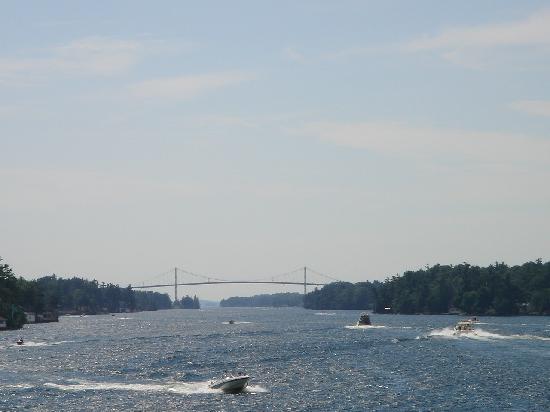 Grievances provoking the American Revolutionary War left many Philadelphians unprovoked. Loyalists often fled to Canada, especially Kingston, Ontario. Decades later the flow of dissidents reversed, Canadian anti-royalists taking refuge south of the border.
Grievances provoking the American Revolutionary War left many Philadelphians unprovoked. Loyalists often fled to Canada, especially Kingston, Ontario. Decades later the flow of dissidents reversed, Canadian anti-royalists taking refuge south of the border.
Favorites - II
More favorites. Under construction.
Central Pennsylvania
"Alabama in-between," snickered James Carville, "Philadelphia, Pittsburgh, and Alabama in-between."
La Cosa Nostra Has an Apalachin Outing
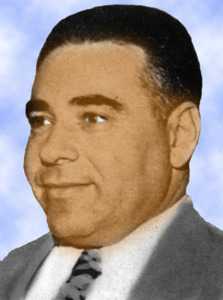
|
| Joseph Barbara |
It's hard to convince people of something they don't want to believe; others are simply determined to deny they already know it. In any event, prior to 1957, it was vigorously denied by many Americans of Italian descent that there was any such thing as organized crime, The Mob, The Mafia, or La Cosa Nostra. One of the pieces of evidence for regarding organized crime as just an anti-Italian slander was the consistent denial by the head of the F.B.I. J. Edgar Hoover that a national crime syndicate existed. Just why Hoover took this strange position will have to be left to future historians. But even J. Edgar Hoover couldn't deny it after November 14, 1957, when New York State Police surrounded a hundred mob bigwigs, lieutenants, and bodyguards at Apalachin, NY.
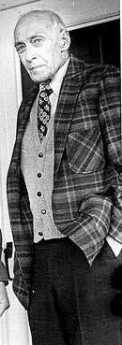
|
| Sgt Edgar Croswell |
New York State troopers always kept a watchful eye on a fifty-acre estate belonging to Joseph Barbara the reputed boss of Central Pennsylvania crime, located just within New York state borders; it is not necessary to invent a feud with one trooper, or insist that some disgruntled criminal tipped him off. When all local motels were suddenly booked up, and dozens of expensive automobiles with out-of-state licenses could be seen parked in the estate, it was only prudent to check the license numbers. When the report came back that most of the cars belonged to persons suspected of leadership in organized crime, it was reasonable to establish roadblocks around the estate, just in case. And then, after a car sped in past the roadblocks, soon followed in reverse by dozens of adult males fleeing in suits into the surrounding woods, it was natural enough to pick them up for questioning. It's estimated that fifty of them got away, but 58 mob bosses, henchmen, and bodyguards were caught and indicted. Everybody, it seems, had heard that Joseph Barbara was feeling unwell, and they had come to inquire after his health. Local lore has it that for years, wallets filled with hundred dollar bills were to be found tossed into the nearby underbrush.
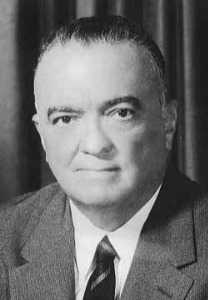
|
| J. Edgar Hoover |
A great deal has been said and written about what was really going on, although a lot of it is probably deliberate misinformation, and some of the rest is couched in "weasel words" intended as some sort of code. The present general opinion is that the old-style Sicilian Mafia had engaged in a war for several years with upstart "Liberals" and that this meeting was intended as a peace treaty of the "Crime Commission", for which some crime bigwigs from Italy had been imported as referees. Grander visions, including the extension of crime syndicates into Cuba, Las Vegas, and California were on the agenda but were not the primary agenda. It was rumored that Angelo Bruno of Philadelphia had been newly appointed to the Commission, and was leaning toward favoring the "Liberal" faction. Such a disruption of leadership as the Apalachin round-up naturally resulted in a large number of assassinations, imprisonments, novels, and movies. This was the final, undeniable, outing of organized crime. The mob was finally turning away from the giddy days of prohibition rum-running, toward more modern entertainments like recreational drugs, gambling, and loan sharking. The Sicilians were losing control to Italians and Jews. The public was going to movies and reading books; it was becoming inevitable that the "goddam innocent bystanders" and other do-gooders were going to demand that this sort of invisible empire simply had to be curbed
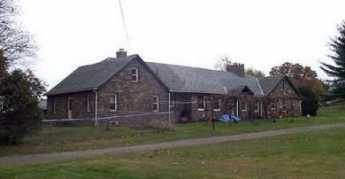
|
| Joseph Barbara's Place |
Just why Apalachin was selected is debatable. It's visible from the Interstate Highway, and state roads run by the estate. It's quite close to the Susquehanna River, for whatever value that might have to organized crime. It's, therefore, both private and remote, as well as within a couple of hours easy drive to most East coast cities. And its back road runs straight to Hazelton, which might seem a more natural place for the boss to live, except that Apalachin was just over the state line for legal purposes. The verbal history circulated within knowledgable circles is that the Mafia started in Sicily in response to resistance to Italian authorities, especially Garibaldi. When it got to be time to move, they first went to New Orleans. Unable to cope with the Ku Klux Klan, however, the pilgrims split into two main movements. One went to South Philadelphia, and the other went to Hazelton. After that, the links to New York, Chicago, and Las Vegas are obscure.
So, Apalchin is worth a drive-by. Those who are timid can get a fairly good idea from Google Earth.
Originally published: Wednesday, August 04, 2010; most-recently modified: Wednesday, May 22, 2019